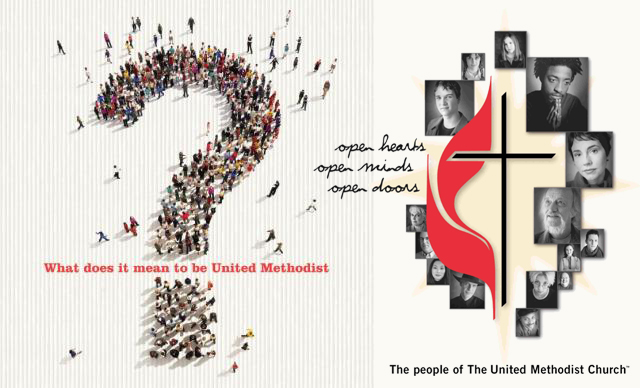Study compares attitudes before and after historic Supreme Court decision
A new survey from United Methodist Communications found that the United States Supreme Court’s decision in June to allow same-gender couples to marry no matter where they live had little impact on U.S. United Methodist members’, leaders’ and pastors’ opinions regarding the topic. However, respondents were not in agreement on whether the church should make changes to its policies in order to be consistent with the court’s ruling.
The survey also revealed that despite marked differences in opinions about sexuality, about two-thirds of all respondents remain quite hopeful about the future of The United Methodist Church, with a rating of 7 or higher on a scale of 10. One hundred percent of pastors, 99 percent of leaders and 81 percent of members who responded agreed that “God’s grace is available to all and we seek to live together in Christian community.”
“The objective of the survey was to look at shifts in attitudes about various issues and whether that differs according to one’s role in the church,” said Dan Krause, chief executive of United Methodist Communications. “We looked at comparison data from a survey last year to see if attitudes have changed.”
The research study looked at three groups – pastors, church leaders and members – for their opinions on key issues affecting the church: welcoming and inclusion of all persons regardless of sexual orientation, attending a church led by a gay pastor, allowing United Methodist clergy to conduct same-sex marriages and agreement with other statements in United Methodist church law.
A large majority of respondents in all groups agreed that The United Methodist Church should be welcoming and inclusive of all persons in church membership and worship, regardless of sexual orientation.
Opinions varied more widely on issues regarding clergy.
About half of all respondents, regardless of their role, were likely to attend a church with a gay pastor, with about one-third of each group saying they would not, and the remainder undecided.
Thirty-six percent of members agreed that “self-avowed practicing homosexuals” should not be certified as ministers while 44 percent disagreed – compared to 52 percent of pastors and 54 percent of leaders who agreed and 42 percent of pastors and 38 percent of leaders who disagreed.
Respondents were also split on whether the “practice of homosexuality is incompatible with Christian teaching.” Forty-four percent of members agreed with the statement, while pastors and leaders came in higher at 53 percent and 54 percent respectively. Thirty-nine percent of members, 36 percent of leaders and 40 percent of pastors disagreed.
Forty-one percent of members surveyed agreed with the church’s ban on same-sex marriages being conducted by United Methodist clergy or in United Methodist churches, while 42 percent disagreed and 17 percent held no opinion. This compared to 54 percent of pastors and leaders who agreed, 38 percent who disagreed, and 8 percent who had no opinion.
In a 2014 survey, respondents were asked this same question. A comparison of the results showed small differences between opinions before and after the Supreme Court decision (46 percent of members agreed, while 38 percent disagreed; 59 percent of pastors agreed, 32 percent disagreed; and 50 percent of leaders agreed, 39 percent disagreed).
Discrimination against ethnic minorities and sexual orientation/ same sex marriage topped the list of issues to be discussed at General Conference. Pastors’ and leaders’ interest in same-sex issues took a significant jump following the Supreme Court decision about same sex marriage from November-December 2014, though this data was not available for members.
Other issues that had a rise of ten or more points in the percentage of respondents who considered them “very important” for General Conference mirrored topics most in the news over the past few months: refugees from war, poverty, and religious persecution; conflict around the world; and gun control issues.
United Methodist Communications worked with Customer Research International to conduct a telephone survey of 400 pastors and 400 church leaders randomly selected from United Methodist databases, and with Corporate Research to conduct an online poll of 400 United Methodist members who are part of an outside consumer research panel. The research “weighted” the data geographically and by age to more closely reflect the denomination’s demographics.
More comprehensive survey findings are available online.

